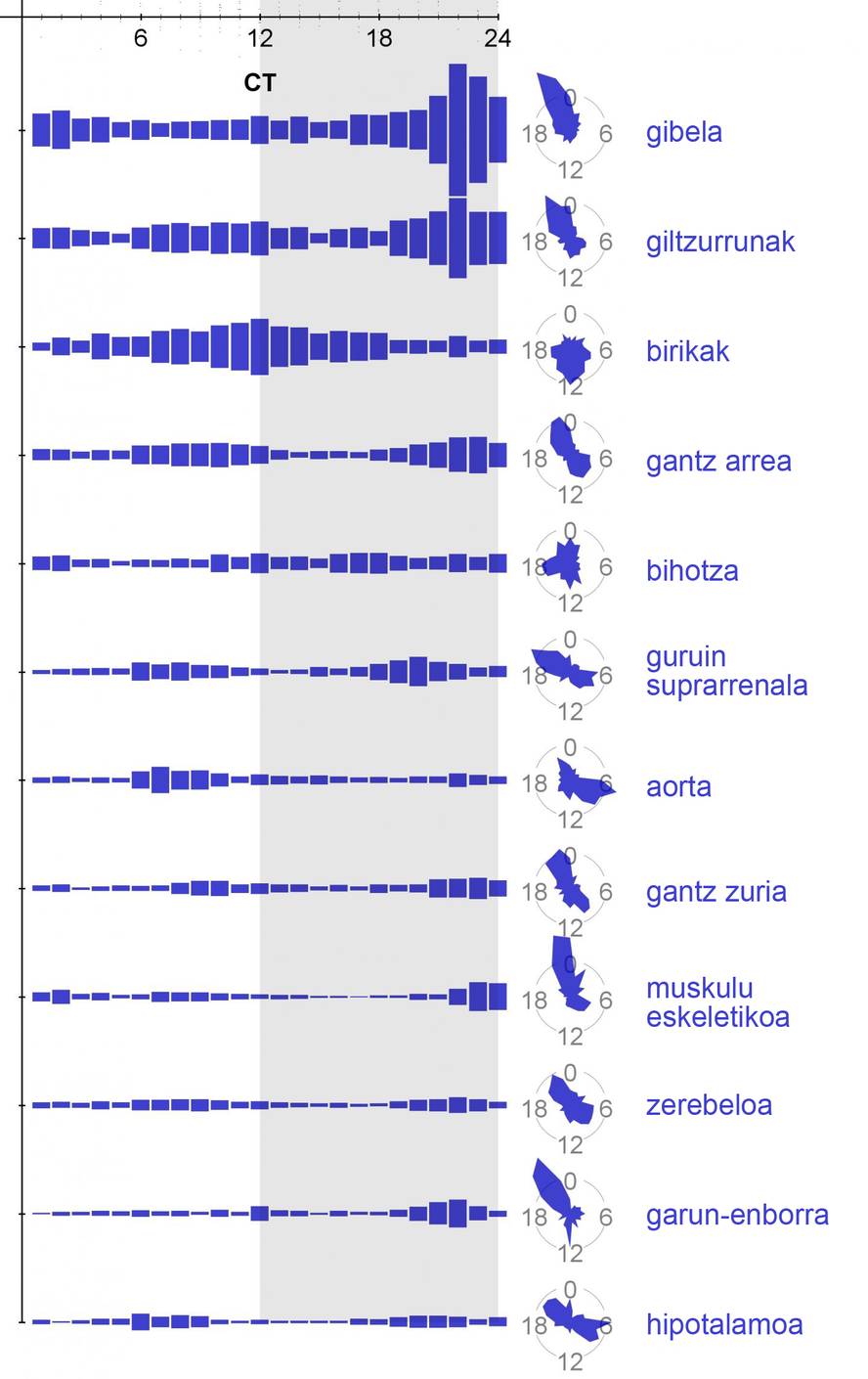Gene schedule
Researchers at the University of Pennsylvania's Perelman Medkuntza School have clarified the timetable for the expression of thousands of genes. The distribution of gene expression has been analyzed 24 hours a day, affecting the importance it may have in the use of drugs. The work has been published in PNAS magazine.
For five years researchers in Pennsylvania have investigated the timing of mouse genome expression. It is observed that 43% of genes encoding proteins have some circadian rhythm. In general, genes are more expressed before sunrise and sunset, but they have seen that the rhythm varies according to the organ of the body. For example, in the liver and kidneys the genes are active from six in the afternoon and in the lungs at noon.
This schedule may be important in the use of medicines. In fact, the researchers underlined that half of the 250 drugs on the World Health Organization's (WHO) essential drug list are involved in proteins encoded by genes with circadian rhythm. Thus, it is very likely that the effectiveness of these drugs will be different in one hour or another. Many of these medicines last a short time in the body.
For years, the importance of the medicine intake schedule has been investigated and some results have been obtained, such as chemotherapy. But so far trial and error was the way to investigate. “We now know what the drugs are subjected to the schedule and when and where their cycle is in the body,” explains John Hogenesch in the press release.





